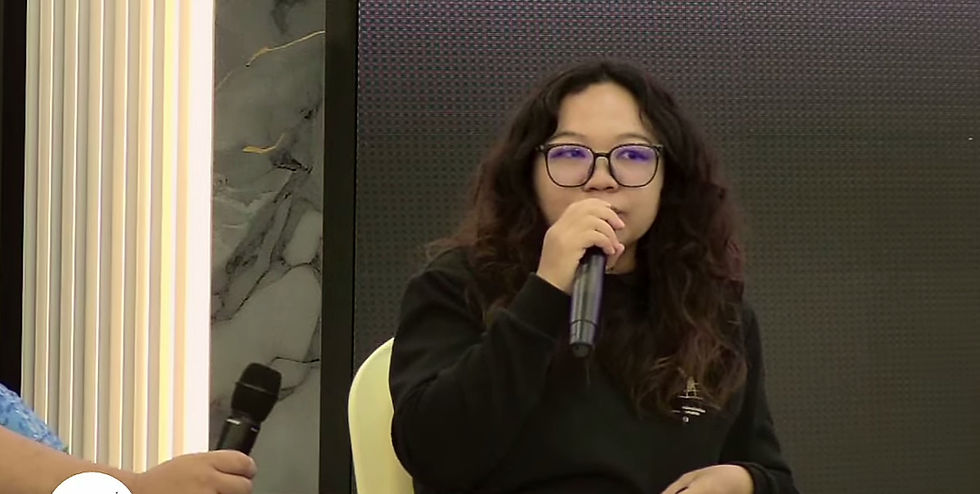Dr. Elizabeth: Healing Through Music, Defying Silence
- kay88857
- 2 days ago
- 3 min read
Updated: 1 day ago

From an early age, Dr. Elizabeth was known for her imagination, a young girl in Central Myanmar who loved losing herself in Chinese fantasy novels and stories of courage. Her aunt’s small book rental shop became her haven, where she spent countless hours dreaming up her own worlds and writing her own stories. In medical school, she started a blog site where she published love poems alongside creative “edutainment” pieces like why handwashing matters or the importance of wearing motorcycle helmets. Even then, her voice carried both compassion and conviction.
Her motivation to become a doctor was uniquely her own, not driven by social pressure or parental expectation, but by a dream to one day sign her books as “Dr. Elizabeth, Medicine University”. At the time, many well-known Myanmar authors proudly included their university name after their pen name, and she wanted to do the same. After graduating in 2012 from the University of Medicine, she pursued a specialization in interventional cardiology.
When Myanmar’s military seized power in 2021, she was among the first doctors to refuse to work under the junta. She went further speaking out publicly, live-streaming messages that encouraged other healthcare workers to resist oppression. Her courage came at a cost. She was charged under Section 505(a) of the Penal Code for “spreading false news” and “inciting unrest.” For a year, she hid in remote villages before eventually crossing into Mae Sot, Thailand, in 2022.
Despite the hardship, exile became a new beginning. Through reflection, she realized how deeply patriarchy had shaped her country and her own sense of limitation. Feminism, she says, “opened her eyes” revealing the invisible systems that confine women and giving her the language to name the justice she had been fighting for all along.
When she worked as a house resident, she often spoke up against workplace injustices calling out unfair treatment or naming those responsible. At the time, she didn’t know the term feminism, but she simply couldn’t stay silent. Laughing, she recalls, “Maybe it comes from all the Chinese novels I grew up reading, the heroines always found a way to fight back against injustice.”
When asked what feminism means to her, she shared, “To me, being a feminist means kindness. If I stay silent when others suffer, one day it will be my turn to suffer too. So I choose to stand up not just for myself, but to prevent similar things from occurring for all of us.”
In exile, music found her again. What began as a personal outlet for healing soon turned into a movement. She started writing songs words born from pain, set to melodies that spoke of strength. One of her revolutionary songs became part of the “Blood Money Campaign,” a protest anthem that went viral across Myanmar’s resistance networks. Her other song got featured on NUG Radio, titled “Tattoo Revolution“.
Earlier this year in Mae Sot, she joined a wellness session where she first connected with a community of exiled women supported by Exile Hub. Later, during a Feminist Residency, she discovered a sense of sisterhood and solidarity among others who had fled Myanmar’s repression. With the support of a Feminist Storytelling Grant, she is now creating The Phoenixes, a music video series that celebrates the strength and creativity of Myanmar’s women in exile.

Reflecting on her journey, she said, “Being part of this project gave me space to sing my own songs, make better music, and help my friends chase their dreams too.”
Today, Dr. Elizabeth continues her healing journey through rhythm, resistance, and radical hope. Her story reminds us that even when silenced, a woman’s voice can still rise as song, as courage, and as light for others finding their way through the dark.




Comments